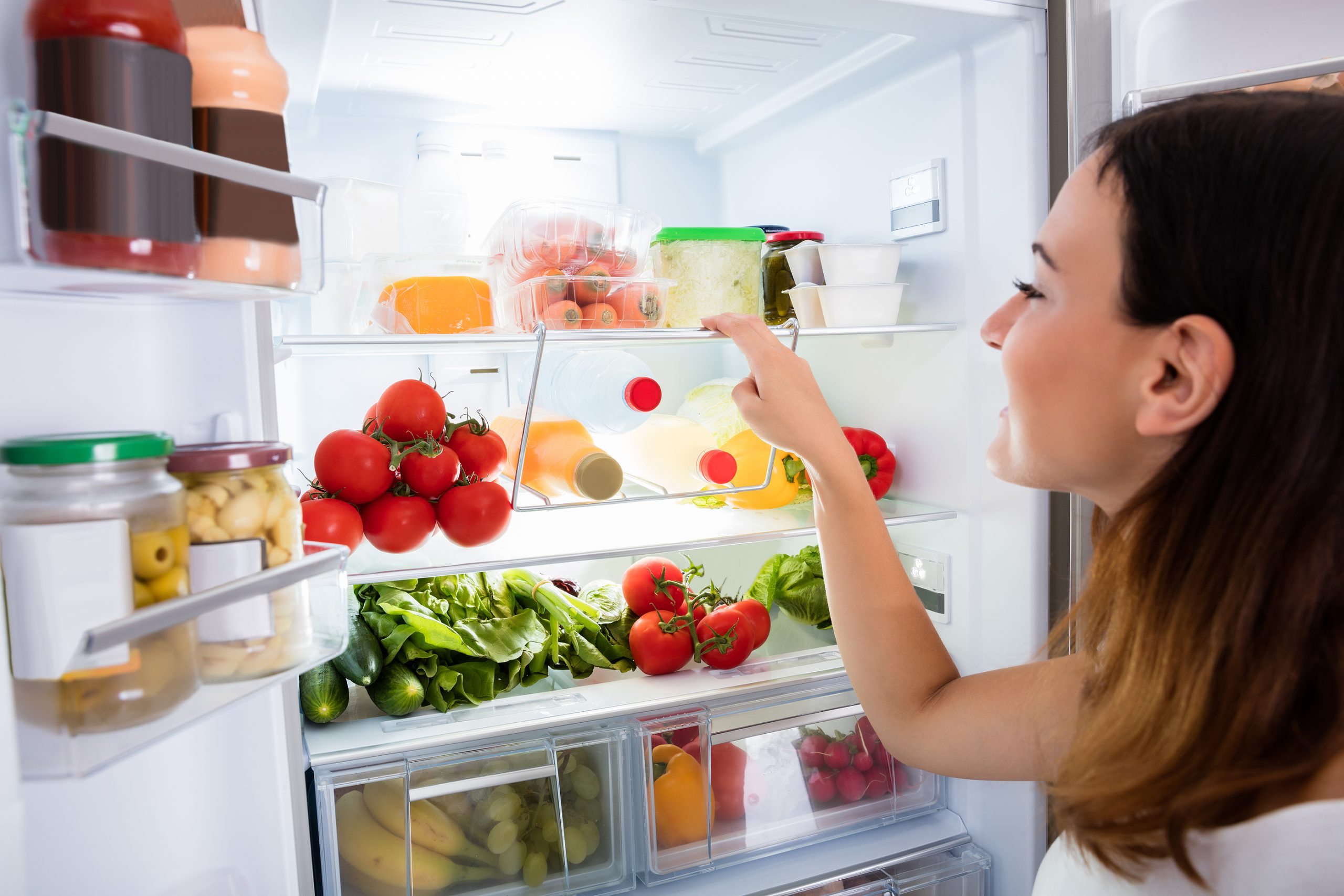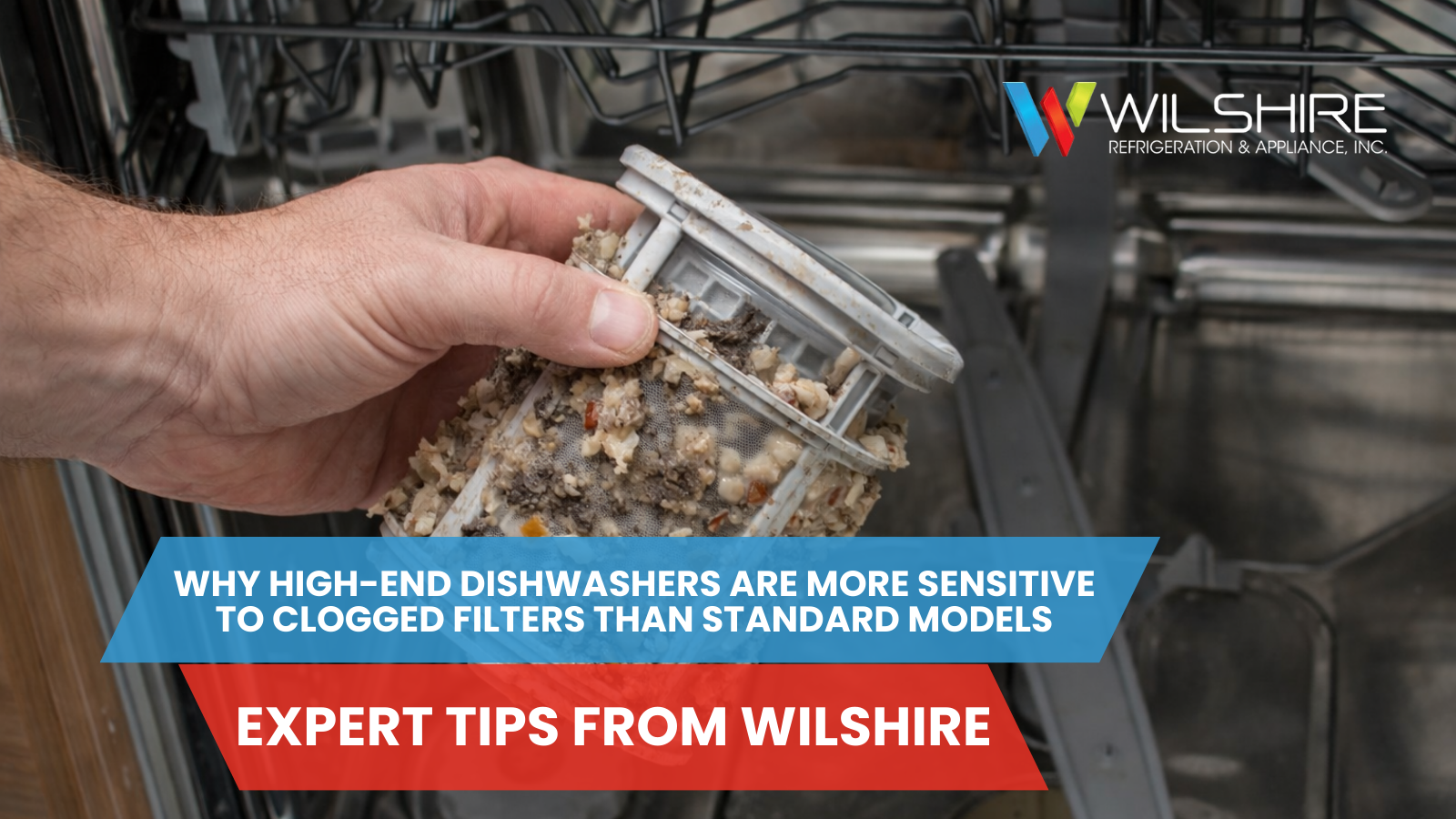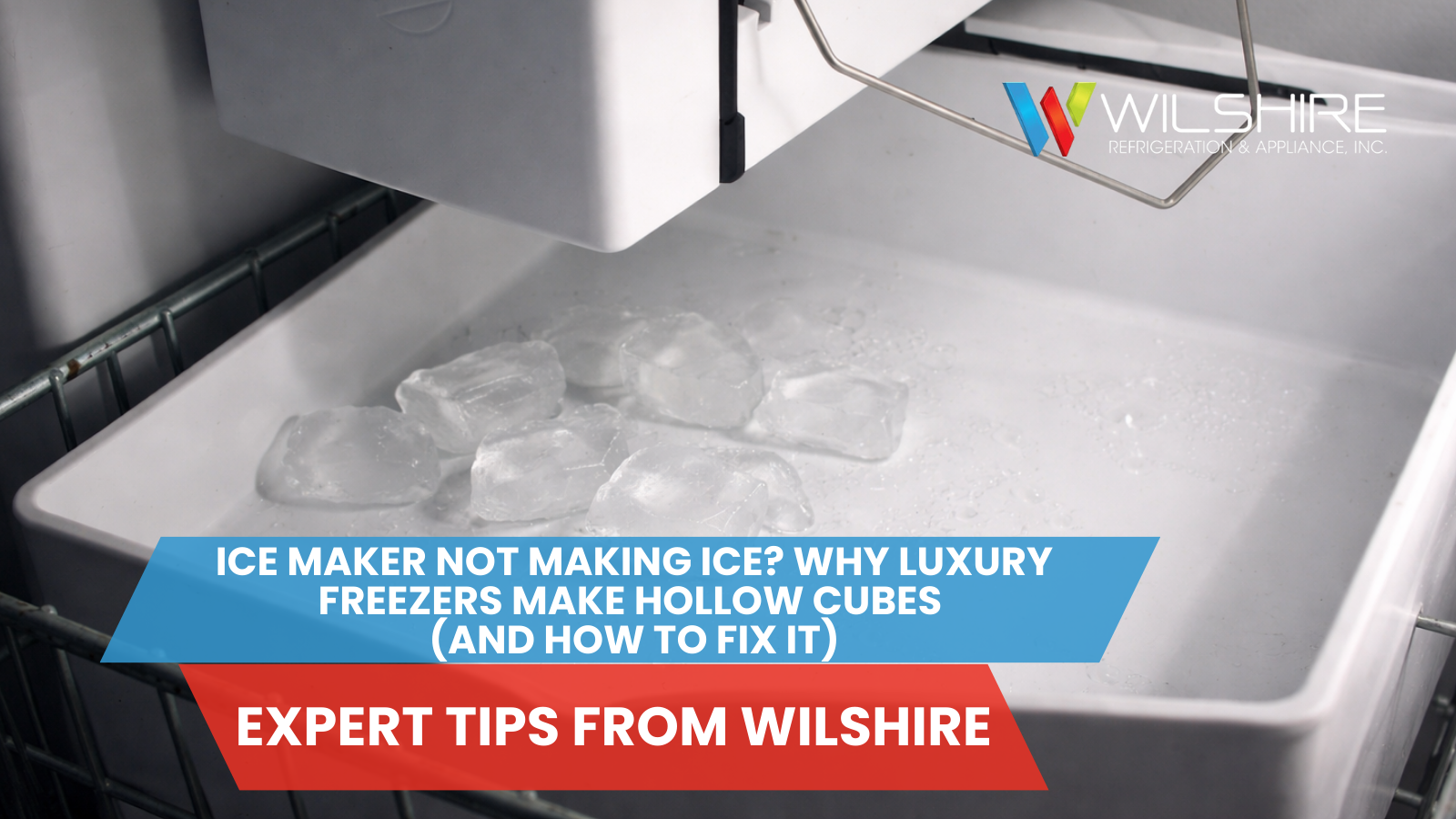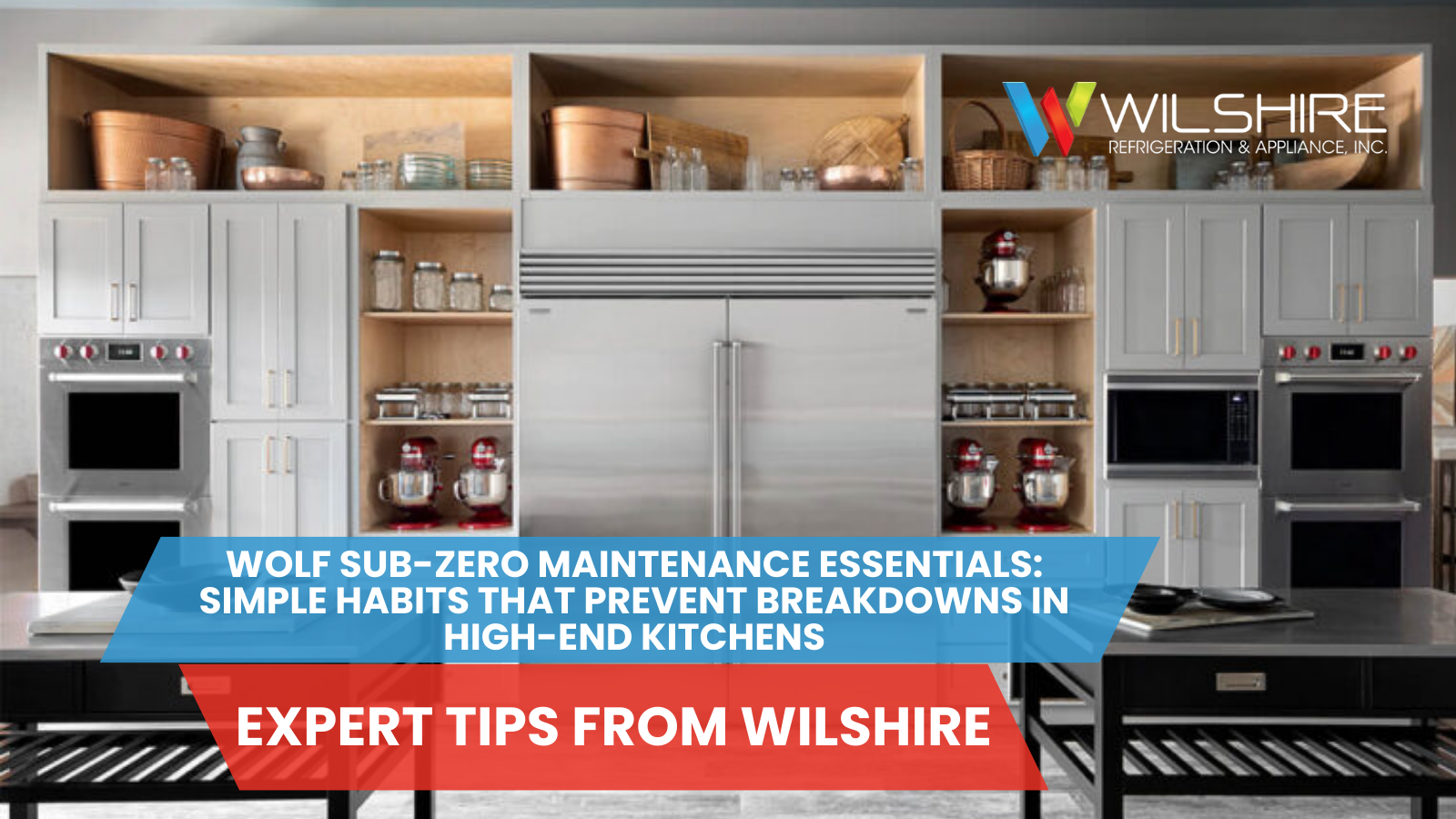Summer 2020 has been marked by not just coronavirus fears, but also hot temperatures, high humidity, and severe weather. In fact, heat and humidity cause your refrigerator to work harder to produce cold air and keep contents cool. This can increase your energy bill, but here are eight effective tips to maintain energy efficiency and ensure your appliance stays reliable.
1. Clean the Condenser Coils
The condenser coils in your fridge allow heat to escape. If dust, dirt, grime, pet hair, and other debris build up on them, the refrigerator can overheat and the compressor can fail. Clean the coils using a bristle brush and vacuum. On most models, they’re located in the back, so the unit must be moved away from the wall. Newer units sometimes have a front grill you can remove to access the coils.
2. Keep Food Covered
Food should be covered and placed in an airtight container. If you leave food and beverages uncovered, they can release moisture inside the fridge, forcing it to work harder to keep things cool and dry. Covered food will also stay fresher longer, especially perishable items and leftovers.
3. Be Mindful of Door & Storage Bins
Those storage areas in the door are convenient, but be mindful the temperatures here are often less consistent than elsewhere. Temperature fluctuations can cause perishable foods to spoil. For example, eggs are better preserved on a shelf. To keep fruits and vegetables fresh, put them in the appliance’s storage bins designed for this purpose.
4. Let Food & Leftovers Cool Off
Placing hot food inside can affect refrigeration; heat released by it raises the internal temperature, forcing the compressor to work harder. Instead, let the food cool off to about room temperature. But for safety reasons, don’t leave it out for more than two hours, per U.S. Food and Drug Administration recommendations.
5. Keep Your Fridge Well-Stocked
A well-stocked fridge uses less energy than an empty one. The optimal setup is one without large open areas. If you don’t need or want to buy more food, you can use pitchers of water to fill empty spaces. In any case, you don’t want to overload the refrigerator. A full fridge can disrupt air circulation.
6. Keep the Door Closed
Keeping the refrigerator door closed prevents cool air from escaping. In the summer, you want to keep it closed as much as possible. Don’t use the fridge to cool off even though all that cold air is tempting. A good rule of thumb is to have it organized before the hot months, so you can quickly access what you need and close the door quickly.
7. Check the Refrigerator Seal
The seal or gasket on the refrigerator door ensures it is airtight. Check for any signs of wear and tear. If there are gaps in the seal, it can affect cooling, so the unit won’t maintain the correct temperature. A seal that is worn or loose should be replaced.
8. Maintain an Optimal Temperature Setting
The optimal temperature for a refrigerator is between 35 and 38 degrees Fahrenheit. It should always be below 40 degrees. For a freezer, the optimal temperature is 0 to 5 degrees. These settings will keep food fresh without compromising efficiency. As long as your fridge can maintain these temperatures, it is in working order. On average, the appliance lasts about 10 years, although one in a garage, porch, or other non-temperature-controlled area may have a shorter lifespan.
Contact Wilshire Refrigeration
Keeping your refrigerator cool this summer should be easy. However, if you notice it’s not working as reliably, contact Wilshire Refrigeration & Appliance and we’ll send a Sub-Zero appliance specialist to your home. We are providing refrigerator installation and repair service in Los Angeles, Santa Barbara, and throughout Southern California during the coronavirus pandemic. To receive prompt factory-certified service, call 800-427-3653 today!




